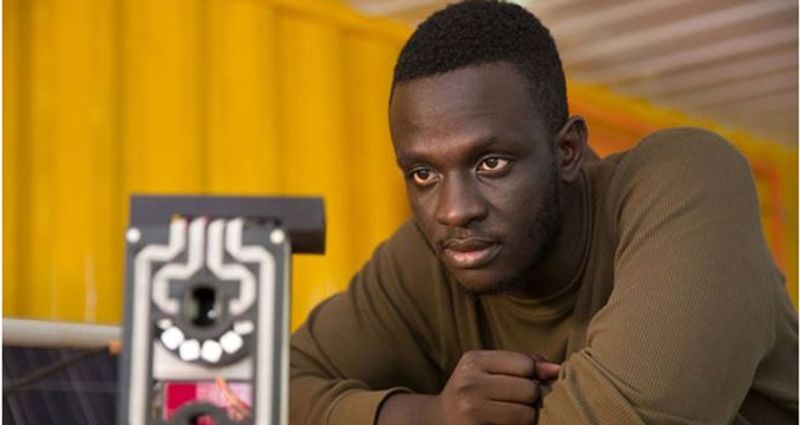
A Twenty four year old Ugandan inventor Brian Gitta has won the Royal Academy of Engineering’s Africa Prize for inventing a device that detects signs of malaria without drawing a single drop of water.
Brian was awarded £25,000 (Approximately (UGX130m) in prize money from the Royal Academy of Engineering.
Gitta also developed an application that is downloadable on mobile phones.
Gitta was inspired to invent the device, which shines a red beam of light on the patient’s finger, after blood tests failed to diagnose his own malaria.
The general idea behind its malaria diagnosis technology has remained the same, though. You put your finger into the portable device, which then uses light and magnetism to analyze your blood composition for the tell-tale signs of a malaria infection (which affects your red blood cells).

Matibabu App works by connecting a sensor to a gadget that powers sensor
One of the main advantages of Matibabu’s technology over a conventional blood test is that you can get results back significantly faster (2 minutes compared to 30 or more). The actual diagnosis software can run on a desktop or smartphone.
Malaria is the leading cause of death in Uganda, but it took four blood tests to diagnose Gitta with the disease, says Shafik Sekitto, one of Gitta’s partners in his Matibabu team.
“[Gitta] brought up the idea: ‘Why can’t we find a new way of using the skills we have found in computer science, of diagnosing a disease without having to prick somebody?” Sekitto said.
“Matibabu is simply a game-changer,” Rebecca Enonchong, Africa Prize for Engineering Innovation judge and Cameroonian technology entrepreneur, said in a statement.
“It’s a perfect example of how engineering can unlock development – in this case by improving healthcare.”
Matibabu, which means “treatment” in Swahili, clips onto a patient’s finger and does not require a specialist to operate.
Its red beam can detect changes in the colour, shape and concentration of red blood cells – all of which are affected by malaria.
The majority of global deaths caused by malaria – usually transmitted by the bite of an infected Anopheles mosquito – occur in sub-Saharan Africa.
His team hopes the device can one day be used as a way to better detect malaria across the continent.
‘Not an easy journey’
But before that, Matibabu has to go through a number of regulators before being available in the market, Mr Sekitto told the BBC.
It is “not an easy journey because you have to prove beyond reasonable doubt that the device is safe for human use”, he said.
In the meantime, the Matibabu team are currently writing an academic paper on their findings, have been approached by international researchers offering support, and are currently performing field trials on the device.
The prize, which was set up in 2014, provides support, funding, mentoring and business training to the winners, the Royal Academy of Engineering said in a statement.
“The recognition will help us open up partnership opportunities – which is what we need most at the moment,” Mr Gitta said in a statement.















Henry Lutaaya
Leave a Comment
Your email address will not be published.